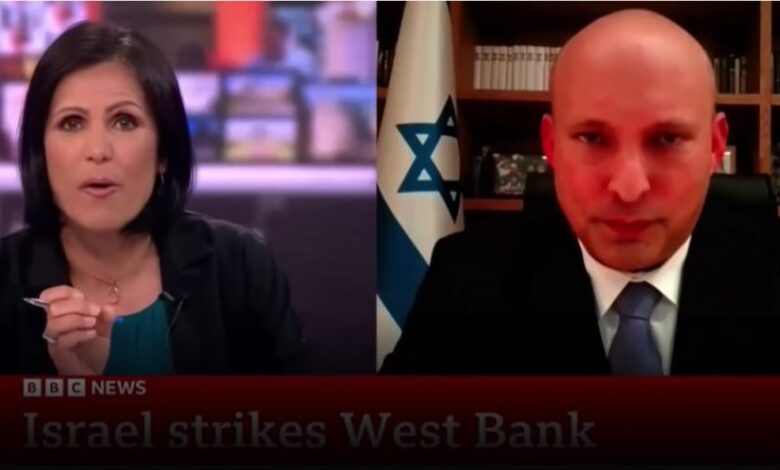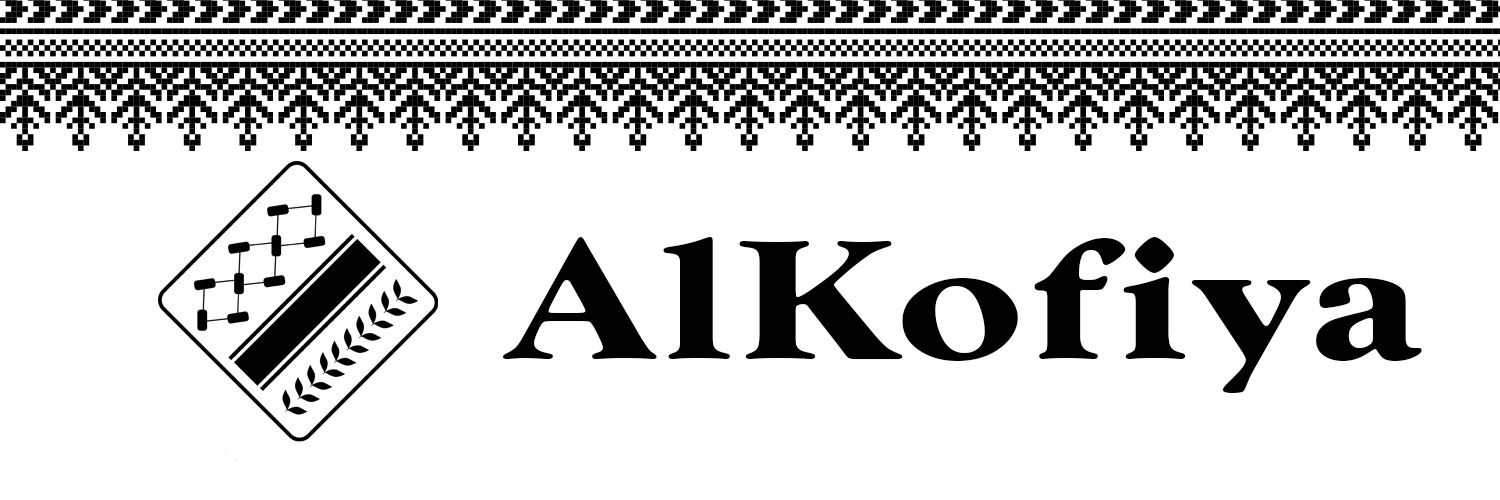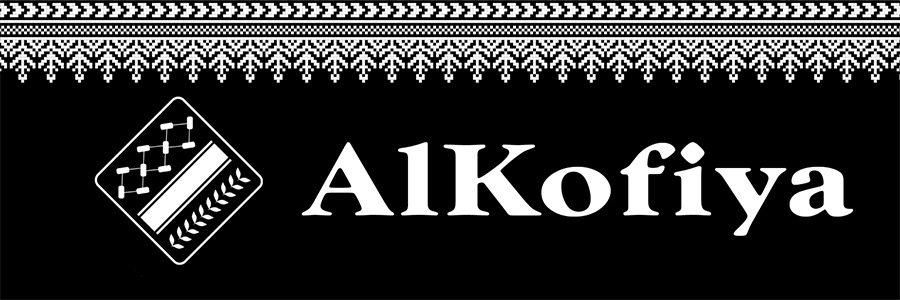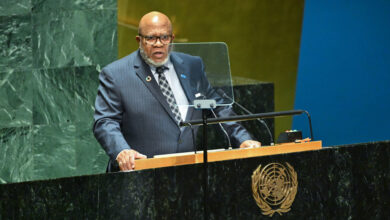
The BBC apologized on Thursday after a presenter said that “Israeli forces are happy to kill children” in an interview with former Israeli occupation Prime Minister Naftali Bennett.
BBC news presenter Anjana Gadgil made the comments whilst discussing Israel’s this week invasion of the occupied West Bank city of Jenin with the former Israeli prime minister on Tuesday evening.
Gadgil asked Bennett: “The Israeli military are calling this a ‘military operation,’ but we now know that young people are being killed, four of them under eighteen.
“Is that really what the military set out to do? To kill people between the ages of 16 and 18?”
Responding, Bennett claimed: “Quite to the contrary. Actually, all 11 people dead there are militants. The fact that there are young terrorists who decide to hold arms is their responsibility.”
Bennett also alleged that many of the perpetrators responsible for operations that killed dozens of Israelis over the last year came from or were trained in Jenin.
He added: “Jenin has become an epicenter of terror. All the Palestinians that were killed were terrorists in this case.”
Gadgil then interjected: “Terrorists, but children. The Israeli forces are happy to kill children,” adding: “Under your definition, you’re calling them terrorists. The UN is calling them children.”
Gadgil’s comments received criticism from both Bennett and pro-Israel groups, with the Board of Deputies of British Jews stating that it was “appalled” by the presenter’s “simply disgraceful” comments, which it said constituted “a clear breach of the Corporation’s own Editorial Guidelines.”
The BBC issued a statement on Thursday declaring that it had covered ongoing events in ‘Israel’ and the West Bank “in an impartial and robust way” and that “the United Nations raised the issue of the impact of the operation in Jenin on children and young people.”
But “while this was a legitimate subject to examine in the interview, we apologize that the language used in this line of questioning was not phrased well and was inappropriate,” the BBC said.





